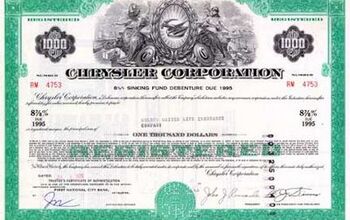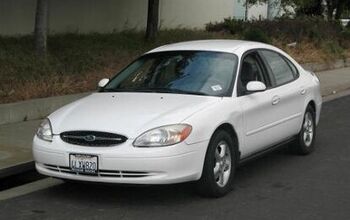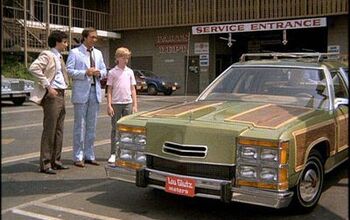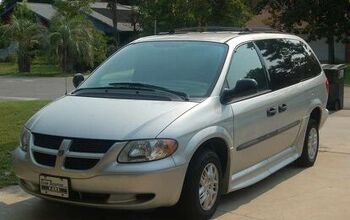Hammer Time: The Best Time
“When should I buy?” Some folks think that the end of the month is the best. Dealers need to hit their quotas and well.. isn’t every car salesman measured on their month end performance? Others believe that the best time to buy is when the new model’s change over during the August/September time frame. The manufacturers need to clear out those leftovers 2011 models for their recently pressed ‘new cars’. Most of the new cars are mostly the same so… why not just buy the old ones! Well, it’s not that simple.The answer to ‘when’ to buy always depends on three ‘whats’.
The Popular Car: Let’s say you want to buy a Hyundai Elantra. One of my personal favorites for a frugal long-term ‘keeper’ car. Let’s say the MSRP for your Elantra is about $20,000. Can you get a deal right now? Well let’s consider Hyundai’s…
Incentives? None.. to minimal if you are in the military ($500) .
Rebates? Not a chance.
Why? Seven days of inventory. In a business where the average is 48 days. Hyundai has no incentive to discount this car. They may throw a small bone towards ‘special’ financing or leasing the car. But the ‘special’ people eligible for that ultra-low rate will likely be for those chosen few ‘super-prime’ customers. No debt. Never late. A credit history as straight as the lines on an old Volvo 240. Even those buyers will likely pay right near MSRP… plus interest.
If you need the popular car now, go and buy it. But their will be a counter-clockwise flushing sound when you sign on the dotted line. Thousands of extra dollars down the drain for not waiting. Can you live with that? Well, perhaps you may want to consider …
The Other Popular Car: Some cars are popular for a reason. Others are just overproduced. Or right near the end of their model run. Take for instance another one of my other personal favorites, the Nissan Versa.
134 days in inventory. Even with a tight rental fleet relationship and a value-focused base model, Nissan can’t sell these things. Well, not entirely. The Versa still leads the subcompact segment. It’s just that Nissan is trying to satisfy it’s capacity levels and is using whatever means it can to make it so.
Consumer incentives for the Versa? Here is a quick synopsis of March… and here is a quick synopsis for April. They look pretty similar. In Nissan’s case I’m suspecting that their financing criterion is getting pretty loose compared with industry standards. Why?
As a guy who used to lqiuidate cars for Capital One Auto Finance, I can tell you that when a manufacturer is willing to take on five years of risk at no interest, they are willing to move their metal. The dealer is also going to be receiving special rewards for achieving certain sales goals during that time. That along with high inventory levels translates into an opportunity to make the right deal for the consumer.
Another good recent example is when GM decided to deep six the Chevy Cobalt with the Chevy Cruze. Six months ago you could get an XFE model for just a bit over $10,000 plus tax, tag, and dealer bogus fees. That was because GM tossed $4,000 on the hood of every Cobalt that left the building. Not including bonuses, quotas, or whatever financial brew was wafting from their Americredit subsidiary. GM wanted the Cobalt gone and they used everything within their power to make it so. The same now goes for the Versa except…
The Black Swan: The recent tragedies in Japan have completely wiped out most of the consumer’s chance for leverage. Once every few years or so there is an event that either tilts the game heavily towards the consumer or the dealer. Tariffs, bankruptcies, natural and man-made disasters. It can be Mitsubishi offering 0 down and 0 payments until several months after signing to anyone with a pulse. Or a clunker program that rewards the gluttons of America with free moolah for their next car.
In short the best time to buy was… a couple of years ago. The worst time to buy is…. more than likely the next several months. Every manufacturer will be jacking up prices to ‘captialize’ on the lack of supply. My advice is to buy used.. or to simply invest in the ride you have instead of the corporate greedfest that is to come.
But in the ‘normal’ times: Forget about the ‘end of month’ myth. Dealers play their percentages and there are so many folks that now go and buy during this time that it’s no longer a contrarian strategy. Timing car purchases is like timing stocks. Unless the owner of the dealership is your father’s cousin’s former roomate, you can forget about timing your purchase that way.
The opportunity for the deal can be broken down to three elements. Rebates. Incentives. Days in inventory. The last one usually encourages factory incentives to the dealer which makes the deal even sweeter for everyone involved. That Silverado you yearned for in 2007 now has over 90 days of inventory and some healthy rebates as well. It may be a good time to pull the trigger… on a leftover 2010. Just don’t expect anything from Japan to follow suit between now and the next few months. Or better yet… consider the ‘used’ market which I will highlight in the next write-up.
More by Steven Lang
Latest Car Reviews
Read moreLatest Product Reviews
Read moreRecent Comments
- W Conrad I'm not afraid of them, but they aren't needed for everyone or everywhere. Long haul and highway driving sure, but in the city, nope.
- Jalop1991 In a manner similar to PHEV being the correct answer, I declare RPVs to be the correct answer here.We're doing it with certain aircraft; why not with cars on the ground, using hardware and tools like Telsa's "FSD" or GM's "SuperCruise" as the base?Take the local Uber driver out of the car, and put him in a professional centralized environment from where he drives me around. The system and the individual car can have awareness as well as gates, but he's responsible for the driving.Put the tech into my car, and let me buy it as needed. I need someone else to drive me home; hit the button and voila, I've hired a driver for the moment. I don't want to drive 11 hours to my vacation spot; hire the remote pilot for that. When I get there, I have my car and he's still at his normal location, piloting cars for other people.The system would allow for driver rest period, like what's required for truckers, so I might end up with multiple people driving me to the coast. I don't care. And they don't have to be physically with me, therefore they can be way cheaper.Charge taxi-type per-mile rates. For long drives, offer per-trip rates. Offer subscriptions, including miles/hours. Whatever.(And for grins, dress the remote pilots all as Johnnie.)Start this out with big rigs. Take the trucker away from the long haul driving, and let him be there for emergencies and the short haul parts of the trip.And in a manner similar to PHEVs being discredited, I fully expect to be razzed for this brilliant idea (not unlike how Alan Kay wasn't recognized until many many years later for his Dynabook vision).
- B-BodyBuick84 Not afraid of AV's as I highly doubt they will ever be %100 viable for our roads. Stop-and-go downtown city or rush hour highway traffic? I can see that, but otherwise there's simply too many variables. Bad weather conditions, faded road lines or markings, reflective surfaces with glare, etc. There's also the issue of cultural norms. About a decade ago there was actually an online test called 'The Morality Machine' one could do online where you were in control of an AV and choose what action to take when a crash was inevitable. I think something like 2.5 million people across the world participated? For example, do you hit and most likely kill the elderly couple strolling across the crosswalk or crash the vehicle into a cement barrier and almost certainly cause the death of the vehicle occupants? What if it's a parent and child? In N. America 98% of people choose to hit the elderly couple and save themselves while in Asia, the exact opposite happened where 98% choose to hit the parent and child. Why? Cultural differences. Asia puts a lot of emphasis on respecting their elderly while N. America has a culture of 'save/ protect the children'. Are these AV's going to respect that culture? Is a VW Jetta or Buick Envision AV going to have different programming depending on whether it's sold in Canada or Taiwan? how's that going to effect legislation and legal battles when a crash inevitibly does happen? These are the true barriers to mass AV adoption, and in the 10 years since that test came out, there has been zero answers or progress on this matter. So no, I'm not afraid of AV's simply because with the exception of a few specific situations, most avenues are going to prove to be a dead-end for automakers.
- Mike Bradley Autonomous cars were developed in Silicon Valley. For new products there, the standard business plan is to put a barely-functioning product on the market right away and wait for the early-adopter customers to find the flaws. That's exactly what's happened. Detroit's plan is pretty much the opposite, but Detroit isn't developing this product. That's why dealers, for instance, haven't been trained in the cars.
- Dartman https://apnews.com/article/artificial-intelligence-fighter-jets-air-force-6a1100c96a73ca9b7f41cbd6a2753fdaAutonomous/Ai is here now. The question is implementation and acceptance.


































Comments
Join the conversation
I bought a CPO Prius on Monday and I'm kicking myself for not buying or leasing one two years ago after gas prices collapsed and Toyota was leasing them for $169 a month or something ludicrous like that, only a year or two after people were throwing money at Toyota dealers and paying well over MSRP after sitting on waiting lists. Now that pump prices are creeping up - and I know fuel costs are only a small slice of total cost of ownership - people are flocking back to Toyota dealers to hear the following phrases. "Given the earthquake, we don't know when we'll get more in." "Gas prices should break $5 this summer." "I've got 4 calls on this vehicle this morning." I still got a good price on a good car, but this was my first experience buying a desirable car, and it is definitely different than the Nissan Sentra and VW Jetta buying experience.
Now is an excellent time to buy if the car you want is not exactly selling all that well and coming conditions make it look to be an even harder sell (in my case, a manual transmission leftover 2010 Dodge Challenger R/T) and you have a trade that is well suited to coming market conditions and whose replacement is likely to be heavily delayed by the earthquake in Japan (in my case, a 2007 Honda Civic Si, good on gas and the revised 2012 models aren't out yet). Even if the dealer won't want to keep the car on the lot, auction prices on used cars are going up, especially on frugal Japanese machines with perceived reliability. In other words, go where everyone else ain't.